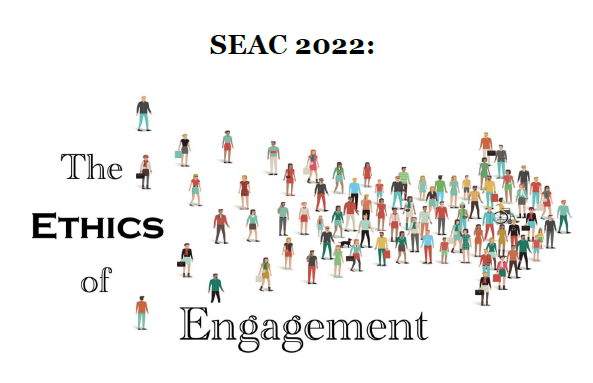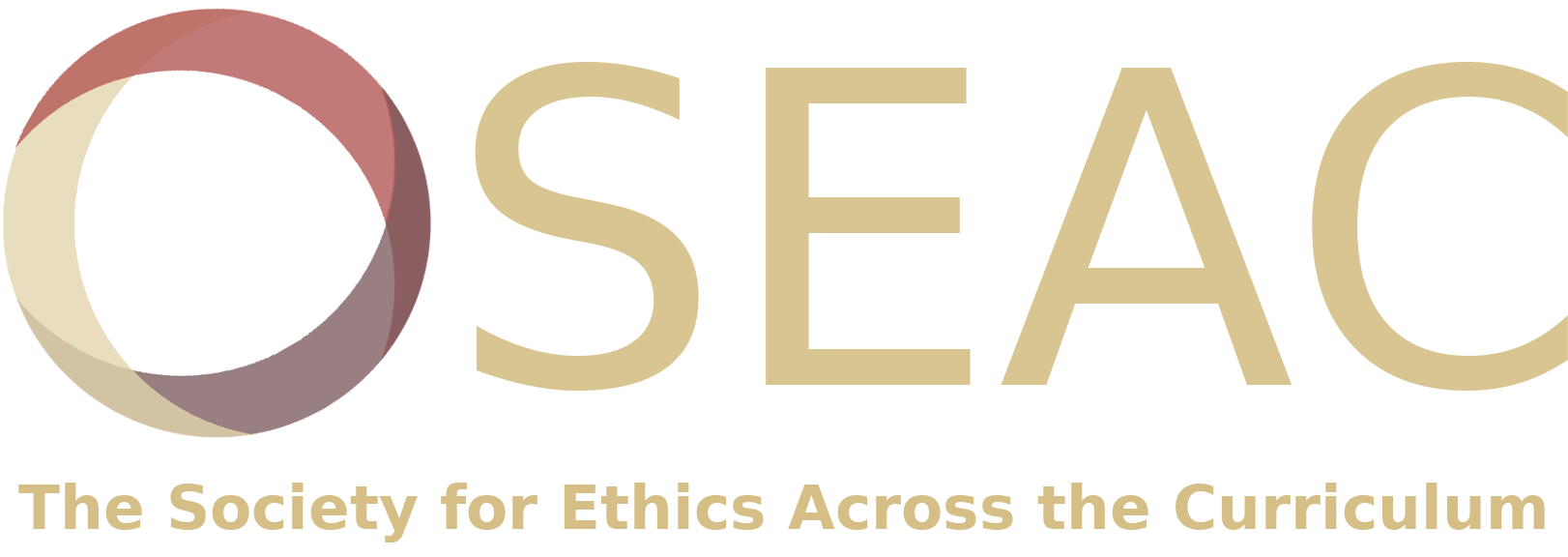
Concurrent Session 4D
Location
Ford Ballroom D, The Inn at Ole Miss
Start Date
7-10-2022 9:00 AM
End Date
7-10-2022 10:45 AM
Description
- Engagement in the Classroom: The Ethics of Annotation Apps / Elisa Warford, University of Southern California
The online reading platform Perusall facilitates collaborative annotation of texts and other media. Using this app, students and instructors can annotate the assigned text, respond to other students’ annotations, and upvote other students’ comments. The annotations are automatically scored by a machine learning algorithm based on criteria commonly used by social media platforms, such as the annotations’ content, number of annotations, amount of time spent on the app, and number of responses and upvotes received. The app aims to increase students’ engagement with the texts and with each other while reducing the grading burden on the instructor. Based on a semester of experience using the app in two ethics classes (one large lecture class and one small seminar class), I found it useful in achieving these pedagogical aims. However, it raises ethical questions around algorithmic interpretability, privacy, and the gamification of education. This paper considers these questions, which apply not only to Perusall but also to other educational technologies. It provides an overview of the app, reports on my experience and students’ experience using it in two classes, and engages with the ethical questions by drawing on student comments from course evaluations and the philosophical literature. - Teaching Engineering Ethics by an Engineering Ethics Knowledge Rubik’s Cube / Yuqi Peng, Nanyang Technological University (Singapore)
As future engineers, engineering students should have a good understanding of engineering ethics. But the current problem is, first, there are still many engineering students who have not been exposed to engineering ethics and have not taken relevant courses. One of the reasons is that many faculties do not know how to offer this course. Second, some students who have taken engineering ethics courses report that they are not sure what they have gained from this course or how to apply what they have learned, and some students even doubt the necessity of engineering ethics. This study proposes to establish an engineering ethics knowledge framework based on the Rubik's Cube, which is beneficial for educators to teach, students to learn engineering ethics, and even for other engineering ethics laymen, designers and managers of school education programs to understand engineering ethics. This Engineering Ethics Rubik's Cube divides engineering ethics knowledge into six aspects: engineering ethics codes, engineering categories, ethical theories and values, stakeholders, engineering whole life cycle, and micro-ethical and macro-ethical issues of engineering. It can not only be used by an educator to sort out the knowledge system before class, and survey students’ existing understanding of engineering ethics knowledge, but also be used as an after-class assessment tool, and a model that students borrow as a reference for analyzing engineering ethical issues. Engineering Ethics Rubik's Cube combined with case discussion and other means should be able to better help students learn engineering ethics. Ethical blind-spots: A New Pedagogical Tool to Examine how Differences in Engineering Students’ Personalities Impact Ethical Reasoning in Ethical Case Studies / Sam Snyder, Virginia Tech Our research team created six case studies used to assess engineering students’ ability to identify and reason through ethical dilemmas while utilizing relevant ethical theories as their basis for their reasoning. The six case studies we created to contrast two personality measures: person-thing orientation and the spheres of control. By designing similarly structured case studies across the differing personality measures, we aim to examine how students with varying levels of comfort across the three domains within the spheres of control (intrapersonal, interpersonal, and sociopolitical control), identify and respond to ethical issues with increasingly complex environments. Similarly, by creating case studies that examine ethical dilemmas centering on both people interacting with things (thing orientation) and with other people (person orientation) we hope to highlight how students may respond differently depending on their affinity for certain environments. The six case studies incorporate every combination of subscales from the spheres of control and person-thing orientation to create unique contexts for the students to reason through. Through the use of these case studies, we aim to highlight how an engineering student’s ethical awareness and ethical reasoning are contextual across environments, which can be used to help tailor future lessons on ethical reasoning.
Session Chair: Qin Zhu, Virginia Tech
Relational Format
conference proceeding
Recommended Citation
Warford, Elisa; Peng, Yuqi; Snyder, Sam; and Zhu, Qin, "Concurrent Session 4D" (2022). Society for Ethics Across the Curriculum Conference. 25.
https://egrove.olemiss.edu/seac/2022/schedule/25
COinS
Oct 7th, 9:00 AM
Oct 7th, 10:45 AM
Concurrent Session 4D
Ford Ballroom D, The Inn at Ole Miss
- Engagement in the Classroom: The Ethics of Annotation Apps / Elisa Warford, University of Southern California
The online reading platform Perusall facilitates collaborative annotation of texts and other media. Using this app, students and instructors can annotate the assigned text, respond to other students’ annotations, and upvote other students’ comments. The annotations are automatically scored by a machine learning algorithm based on criteria commonly used by social media platforms, such as the annotations’ content, number of annotations, amount of time spent on the app, and number of responses and upvotes received. The app aims to increase students’ engagement with the texts and with each other while reducing the grading burden on the instructor. Based on a semester of experience using the app in two ethics classes (one large lecture class and one small seminar class), I found it useful in achieving these pedagogical aims. However, it raises ethical questions around algorithmic interpretability, privacy, and the gamification of education. This paper considers these questions, which apply not only to Perusall but also to other educational technologies. It provides an overview of the app, reports on my experience and students’ experience using it in two classes, and engages with the ethical questions by drawing on student comments from course evaluations and the philosophical literature. - Teaching Engineering Ethics by an Engineering Ethics Knowledge Rubik’s Cube / Yuqi Peng, Nanyang Technological University (Singapore)
As future engineers, engineering students should have a good understanding of engineering ethics. But the current problem is, first, there are still many engineering students who have not been exposed to engineering ethics and have not taken relevant courses. One of the reasons is that many faculties do not know how to offer this course. Second, some students who have taken engineering ethics courses report that they are not sure what they have gained from this course or how to apply what they have learned, and some students even doubt the necessity of engineering ethics. This study proposes to establish an engineering ethics knowledge framework based on the Rubik's Cube, which is beneficial for educators to teach, students to learn engineering ethics, and even for other engineering ethics laymen, designers and managers of school education programs to understand engineering ethics. This Engineering Ethics Rubik's Cube divides engineering ethics knowledge into six aspects: engineering ethics codes, engineering categories, ethical theories and values, stakeholders, engineering whole life cycle, and micro-ethical and macro-ethical issues of engineering. It can not only be used by an educator to sort out the knowledge system before class, and survey students’ existing understanding of engineering ethics knowledge, but also be used as an after-class assessment tool, and a model that students borrow as a reference for analyzing engineering ethical issues. Engineering Ethics Rubik's Cube combined with case discussion and other means should be able to better help students learn engineering ethics. Ethical blind-spots: A New Pedagogical Tool to Examine how Differences in Engineering Students’ Personalities Impact Ethical Reasoning in Ethical Case Studies / Sam Snyder, Virginia Tech Our research team created six case studies used to assess engineering students’ ability to identify and reason through ethical dilemmas while utilizing relevant ethical theories as their basis for their reasoning. The six case studies we created to contrast two personality measures: person-thing orientation and the spheres of control. By designing similarly structured case studies across the differing personality measures, we aim to examine how students with varying levels of comfort across the three domains within the spheres of control (intrapersonal, interpersonal, and sociopolitical control), identify and respond to ethical issues with increasingly complex environments. Similarly, by creating case studies that examine ethical dilemmas centering on both people interacting with things (thing orientation) and with other people (person orientation) we hope to highlight how students may respond differently depending on their affinity for certain environments. The six case studies incorporate every combination of subscales from the spheres of control and person-thing orientation to create unique contexts for the students to reason through. Through the use of these case studies, we aim to highlight how an engineering student’s ethical awareness and ethical reasoning are contextual across environments, which can be used to help tailor future lessons on ethical reasoning.
Session Chair: Qin Zhu, Virginia Tech


